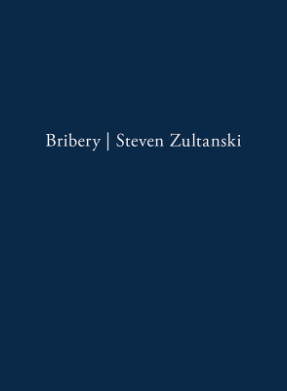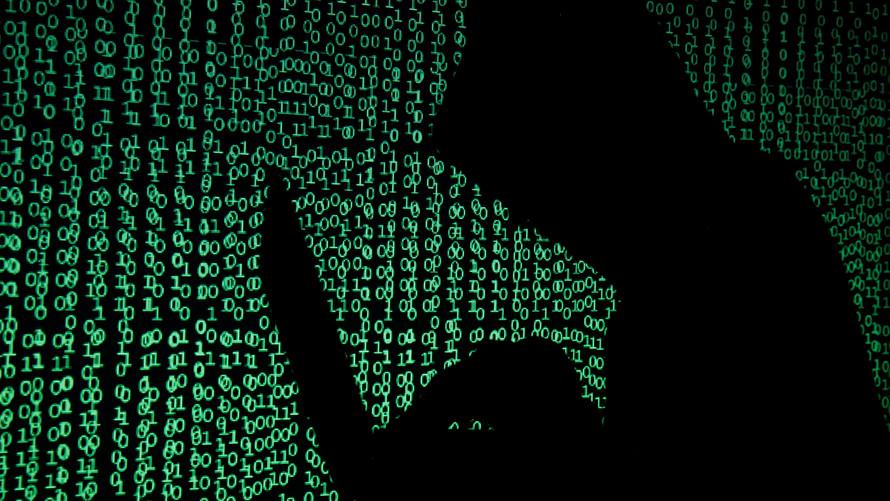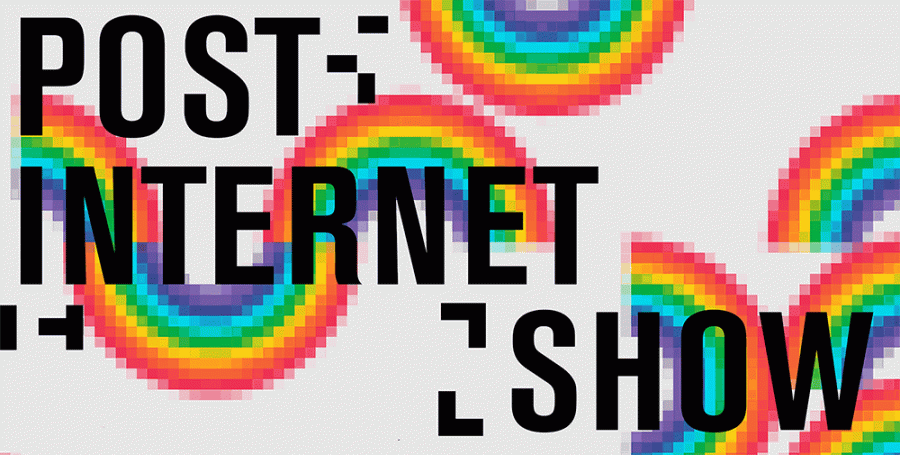
Stephen Zultanski's Bribery: Internet posts or Post-Internet art?
It is absolutely normal for someone to proclaim they are good, but it is absolutely ridiculous to confess one's crimes in public and how one always desires to be evil and worse. That is why most readers will feel shocked or even disgusted while reading Bribery, a long confessional poem written by Steven Zultanski in 2014.
In this psychotic monologue, a strange character is sketched out, who gradually develops into a narrator that engages in earnest and unremitting attempts to become the worst person he can possibly be.
Although it is hard to find any explicit connection with the Internet as a phenomenon in Bribery or in other poems by Zultanski, the poet is considered one of the central figures in the field of post-Internet poetry, where the Internet plays a vital role in the poems' creation. Taking Bribery as an example, this article tries to reveal its relationship with online culture and then answer the question of whether a work like this could exist in the offline world.

"Bribery should be put on trial for the violation of United States obscenity laws." -- Ed Steck, Fanzine
Post-Internet art: Looking at the Internet with a shrug
Post-Internet art, though often drawing from the aesthetics of Internet art, is characterized by its lesser dependence on the technological functions and features of the Internet. For post-Internet artists, the Internet is treated not only as a tool or a medium through which art can be produced, like sculpture or painting, but also as an ideological structure which shapes the formation of art in both digital and physical spaces.
This feature has also been pointed out by Whalley (2015) in his review of post-Internet poetry, where he argues that the Internet “touches all elements of a poem's composition and distribution without necessarily being an explicit focus of the work itself”. In this sense, poets like Zultanski's inevitably use the web as the basis for their work, but they neither make a big deal out of it nor do they make it purposely visible.
Another important feature distinguishing the post-Internet generation from "Net" or "Internet artists" is that they often employ some digital strategies to produce things that can also be found in the real, offline world (Wallace, 2014). For example, in Bribery, Zultanski describes many gruesome crimes and bloody events that did happen in our offline life.
This poem could technically also have come into being without the involvement of the Internet.
However, much of the detailed information found in the poem is collected from real crime websites, resources found on the Internet; this digitally-collected information is then interwoven into this confessional monologue. That is why the poem can be so authentic and horrible that readers may be far more impressed by the vivid descriptions it features than by the pivotal role of the Internet in the process of its creation. It also seems understandable to see the conceptual poet Goldsmith comment in his article that “a writer like Zultanski couldn’t exist without the Web, yet his writing shows few obvious or familiar traces of it”.

Needless to say, the Internet and social media significantly help post-Internet artists to promote their work, and according to LaBeouf, Rönkkö and Turner (2014), this promotion process per se also becomes a kind of work. However, post-Internet art is not exclusive to the online world. Even though some post-Internet poets and artists like Penny Goring are primarily engaged in web-only projects, it is also possible to see the infiltration of post-Internet art into old-media institutions like galleries. This suggests that offline culture also has some basic conditions or techniques that ensure the existence and circulation of works of art, which can also function for post-Internet art.
How can Bribery exist in offline culture?
Referring back to the Bribery, this poem could technically also have come into being without the involvement of the Internet, just like poems were written prior to the development of information technology. For instance, instead of searching for information online, Zultanski could have personally visited prisons and interviewed criminals in order to get to know how they design and commit a crime. He could also have checked relevant literature, and referred to all kinds of texts so as to vivify and reify his figure as a cold-blooded criminal.
Besides the content level, the poem could have later been printed out and released to the market, thus becoming accessible to a larger audience. This process of mechanical reproduction is crucial to realizing the democratic production and distribution of art as new forms of art revolutionize how people access and perceive it - even if that comes at the price of losing the aura of art according to Benjamin (1999).

Similar to the archiving function of the Internet for online art, Bribery could also have been archived after being written or printed out into hardcopies, both of which are traditional techniques of archivation in the offline world. Considering Derrida's (1995) discussion of “archive fever” based on Freud’s concept of “death drive”, it seems to be part of human nature that people would always turn to certain means to record everything in their life for fear of either losing or destroying it. The minute that Zultanski would begin to compose this poem in compliance with how art should be produced and spread offline, he would simultaneously be involved in the process of archiving his ideas and he would work differently than he would in the online context.
In this sense, Bribery could technically have been created even completely removed from online environments. Yet, just as Derrida indicates, the technology used for archiving people’s memory and ideas changes what people can and will produce as well as what dialogues they will have, because both the way of archiving as well as what is being archived are changed as well.
Interestingly, when Derrida envisions what would have happened if Freud was able to send emails, he claims that not only would what we have now be different, but the past itself would also have been different.
The same may also apply to Zultanski and his poem Bribery if placed in an offline environment since the means of producing and archiving art can exert a huge influence on how a poem exists as a work of art and what it actually conveys to the world.

Even if, at first glance, the poem seems totally disconnected from the Internet technologies, Bribery couldn’t really exist without the Web. A deeper analysis reveals that two aspects of Zultanksi's writing show his clear dependence on the Internet: the sources he uses and his writing style.
Without the Web Bribery wouldn’t have been the same.
All of the sources Zultanski used to write Bribery come from the Web. None of the crimes described in the poem comes from his imagination; instead, he copied hundreds of texts from true crime websites and changed the pronouns from the third to the first person. He then unified and wove them together into an epic monologue from the perspective of a psychopathic criminal. Even if he would have found his sources offline by interviewing criminals personally or from official documents, which would have been technically possible, as we have seen, without the Web Bribery wouldn’t have been the same for more reasons.
Firstly, using a means different from Internet, the crimes would have been told differently, for example because of the fear of being recognized, the shame faced when talking in face-to-face interaction, or the shame that is involved in confessing such crude crimes. Consequently, some parts of the stories would have been cut or certain acts and thoughts would have been hidden.
Secondly, the sources wouldn’t be as easy to find in the first place and especially in as ample supply as they are on the Web. Indeed, thanks to the Internet's anonymity, everyone can write his or her thoughts anonymously, allowing people to share all manner of disturbing thoughts without being recognized. This aspect makes the Internet an incredibly wide archive of information where all of kind of documents can be stored, including the collection of real crime stories Zultanski used to write Bribery. Before the Internet, the details of crimes were restricted and suppressed from the public; nowadays, they are available for everyone simply using an electronic device and a web connection.

The second aspect of Bribery that reveals its connection to the Web is the writing style. In fact, Zultanski uses the typical writing style used in blogging and social networking: short sentences, informal tone, high emotional impact, anger, "bad" words, slang.
“[…] if I live even one more day — if this isn’t the last time I taste water, sweat through my shirt, squint,
run my tongue over dry lips, find myself unable to speak, cover my eyes — then I won’t escape a certain extra degree of dipshit eternity, I’ll end up
giving myself at least one more thing to hate about myself, either by doing something I think I dislike, or by doing something I think other people dislike, like committing
some more crimes […]” (p.2, Bribery)
So, Zultanski takes this “internet language” out of its usual context and uses it to write a poem in an offline background.
Bribery goes against every expectation and strikes anyone who reads it. It achieves this not only through style but also through its violent content.
For this reason Bribery goes against every expectation and strikes anyone who reads it. It achieves this not only through style but also through its violent content. Readers would never expect a poem consisting of confessions of crude crimes, especially if they are described in such a direct and obsessive way. With its contents, the poem shakes up the conventional patterns of what can be and what cannot be shown or told.
In his “The Politics of Aesthetics”, Ranciere argues that art allows us to redistribute the sensible, namely “the system of self-evident facts of sense perception that simultaneously discloses the existence of something in common and the delimitations that define the respective parts and positions within it” (Rancière, 2004).
In this sense, Bribery also redistributes the sensible conceiving logic of art in a different way and reorganizing the pattern of what can and cannot be seen.
References
Benjamin, W. (1999). The work of art in the age of mechanical reproduction. In H. Arendt (Ed.), Illuminations (pp. 211-236). London: Pimlico.
Derrida, J. (1995). Archive Fever: A Freudian Impression. Baltimore, MD: The Johns Hopkins University Press.
Goldsmith, K. (2015-03-10). Post-Internet poetry comes of age. The New Yorker.
Wallace, I. (2014-03-18). What Is Post-Internet Art? Understanding the Revolutionary New Art Movement. Artspace.
Whalley, C. (2015-07-03). This has been a blue/green message exiting the social world. The Poetry Review, 105(2).
Joseph J. Tanke (2011). What is the aesthetic regime?. Pharresia, 12.
Jean-Philippe Deranty (2015). Regimes of the arts. Academia.edu.